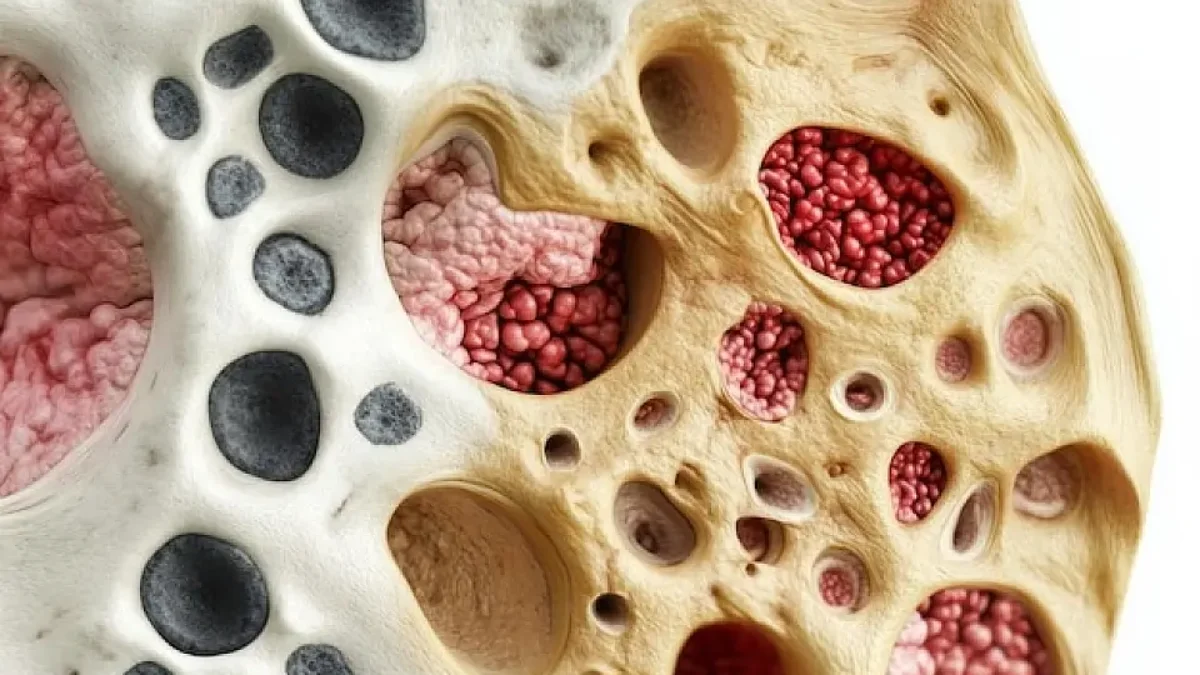Bone Marrow Transplant in Turkey has gained significant attention as a vital procedure for patients requiring treatment for numerous diseases affecting blood cell production. This medical treatment(BMT) involves infusing healthy blood-forming stem cells into a patient’s bloodstream, replacing dysfunctional bone marrow. When bone marrow can’t produce enough blood cells, often due to disease or treatment, a bone marrow transplant becomes essential.
What is a Bone Marrow Transplant?
Bone marrow transplant, or stem cell transplant is a specialized therapy designed to manage and cure various conditions, particularly cancers impacting blood cell formation. During the procedure, stem cells are harvested, filtered, and transfused back to the patient or another individual. Its primary goal is to provide healthy bone marrow cells to individuals after eradicating diseased cells. This therapeutic approach has been employed to treat leukaemias, lymphomas, aplastic anaemia, and several immune deficiency disorders.
What is Bone Marrow?
Bone marrow is the soft tissue within bones that produces and stores blood cells. Moreover, it is fundamental to blood and immune system health, as the stem cells within bone marrow possess the unique abilities of self-renewal and differentiation, thereby enabling the production of diverse blood cell types. In addition, these pluripotent stem cells are essential in bone marrow transplantation because they regenerate a functioning blood system in patients whose marrow is compromised.
Why It’s Done?
Bone marrow transplants are performed to:
- Enable high-dose chemotherapy or radiation treatment by rescuing damaged marrow.
- Replace malfunctioning bone marrow with new stem cells to restore normal function.
- Directly target and eliminate cancer cells using healthy donor stem cells.
A wide array of conditions, including acute and chronic leukaemia, aplastic anaemia, bone marrow failure syndromes, lymphomas, multiple myeloma, and certain metabolic and immune disorders, can benefit from transplantation. In many cases, these conditions necessitate a bone marrow transplant in order to correct the defective or obliterated blood-forming tissues.
Why is a Bone Marrow Transplant Needed?
A bone marrow transplant provides life-saving opportunities by replacing diseased or destroyed marrow. It is necessary to:
- Restore normal blood cell production for diseases like leukaemia and sickle cell anaemia.
- Rebuild the immune system to combat persistent cancer cells post-chemo or radiation therapy.
- Replace defective marrow due to genetic disorders, preventing further health deterioration.
Diseases that May Benefit from Bone Marrow Transplant
Bone marrow transplant is particularly beneficial for:
- Leukemias
- Severe aplastic anemia
- Lymphomas
- Multiple myeloma
- Immune deficiency disorders
- Select solid-tumour cancers
Types of Bone Marrow Transplants Performedin Turkey
There are several transplant types based on donor sources:
- Autologous Transplant: The patient’s stem cells are collected, frozen, and later reintroduced after treatment.
- Allogeneic Transplant: Stem cells are sourced from a genetically compatible donor, often a sibling or unrelated donor found through registries.
- Umbilical Cord Blood Transplant: Cell-rich blood from a newborn’s umbilical cord is used due to its rapid blood cell regeneration capabilities.
How Are a Donor and Recipient Matched?
Donor-recipient matching involves human leukocyte antigen (HLA) typing to ensure compatibility. Although numerous HLA antigens exist, only a few crucial ones determine the success of the transplant. The comprehensive matching process mitigates risks associated with graft rejection and ensures optimal results.
Preparation for the Recipient
Before undergoing transplantation, patients undergo extensive evaluations, which may include:
- Full medical assessment and history review.
- Series of tests to assess health and organ function.
- Consultation and risk assessment with transplant specialists.
- Central venous catheter placement for therapy administration.
Preparation for the Donor
Donors are rigorously evaluated to confirm match viability and health status:
- Screening for viral infections and genetic compatibility.
- Instructions on donation procedures, whether through bone marrow harvest or peripheral blood stem cell collection.
How Are the Stem Cells Collected?
Stem cell collection may occur through:
- Peripheral Blood Stem Cells: Extracted via apheresis, where blood is cycled through a machine to separate and collect stem cells.
- Bone Marrow Harvest: Completed under anaesthesia, where a needle extracts stem cells directly from bone marrow sites like the hip.
The Bone Marrow Transplant Procedure in Turkey
Before the transplant, patients often receive high-dose chemotherapy or radiation. Stem cells are then infused via a central venous catheter, and as cells integrate into the marrow, they initiate new blood cell production.
Why Go for a Bone Marrow Transplant in Turkey?
The advancement of oncohematology and transplantation in Turkey ensures that procedures not only align with high international standards but also match the success rates seen in European establishments. Furthermore, Avicenna International Hospital’s emphasis on patient-centric services and cost-effectiveness has positioned Turkish medicine as a leader in medical tourism. This, in turn, enhances patient outcomes through integrated care and well-trained professionals.
When Does Engraftment Happen?
Following transplant, engraftment, or the initiation of blood cell production, usually occurs between days +15 and +30. Regular blood tests monitor progress, ensuring effective recovery and graft acceptance.
Complications and Side Effects of Bone Marrow Transplant in Turkey
Transplantation poses risks, including:
- Infections due to immunosuppression.
- Graft failures or complications like graft-versus-host disease (GVHD Bone marrow transplants carry inherent risks that require vigilant monitoring and management. Potential complications include:
- Infections: Bacterial, viral, and fungal infections are common due to the patient’s weakened immune system. These can lead to extended hospital stays, delayed engraftment, and organ damage.
- Low Blood Counts: Thrombocytopenia (low platelets) and anaemia (low red blood cells) resulting from marrow dysfunction can cause dangerous bleeding and anemia.
- Pain: Severe mouth sores and gastrointestinal irritation are common side effects of high-dose chemotherapy and radiation.
- Fluid Overload: Excessive fluid administration can lead to complications like pneumonia, liver damage, and high blood pressure.
- Respiratory Distress: Infections, inflammation, fluid overload, GVHD, and bleeding can all compromise respiratory function.
- Organ Damage: The liver and heart may sustain temporary or permanent damage from infections, GVHD, and treatment-related toxicities.
- Graft Failure: Failure of the transplanted cells to engraft can occur due to infections, disease recurrence, or insufficient stem cell counts.
- Graft-versus-Host Disease (GVHD): A serious complication where the donor’s immune cells attack the recipient’s tissues, most commonly affecting the skin, liver, and gastrointestinal tract.
Long-term Outlook for Bone Marrow Transplantation
The long-term prognosis following a bone marrow transplant is influenced by several factors:
- Type of Transplant: Autologous transplants generally have a more favourable outlook than allogeneic transplants.
- Disease and Response to Treatment: Patients with complete remission of their underlying disease have better prospects.
- Genetics and Overall Health: Younger patients with fewer comorbidities tend to experience more positive outcomes.
- Tolerance of Therapies: An individual’s ability to withstand intensive treatments is a key determinant.
With advancements in medical care and supportive therapies, many bone marrow transplant recipients can achieve long-term survival and an improved quality of life. Ongoing monitoring and management of potential late effects are essential for maintaining optimal health.
Advantages of this Procedure When Performed in Turkish Clinics
Performing bone marrow transplants in Turkish medical centres provides a myriad of advantages:
- Cost Efficiency: Up to 50% lower costs than European rates while maintaining superior service.
- Top-tier Protocols: Membership in the European Society for Bone Marrow Transplantation (EBMT) ensures adherence to the latest transplantation protocols.
- Advanced Technologies: Cutting-edge procedures, such as T-cell depletion in haploidentical transplants, reflect the progressive capabilities of Turkish hospitals.
- Expertise: Numerous renowned haematologists offer cutting-edge treatments, with continuous training from global leaders.
- Comprehensive Infrastructure: State-of-the-art equipment and excellent care environments support patient recovery and family comfort.
- International Donor Access: Connected to global registries for efficient donor matching and transplant logistics.
Organize Bone Marrow Transplant in Turkey
Organizing a treatment plan within Turkey’s distinguished clinics requires expertise and knowledge. Medical tourism organizations play a vital role, facilitating connections with charitable foundations to offset patient costs where possible. Expert coordinators leverage their comprehensive understanding of the facilities and staff to ensure each patient receives tailored care. For those considering a bone marrow transplant in Turkey, reaching out to experienced coordinators ensures the entire treatment and recovery process, from hospital registration to complete rehabilitation, is seamlessly managed and devoid of stress.
Conclusion
Turkey’s healthcare system has emerged as a leading destination for bone marrow transplantation, primarily due to its modern facilities, experienced medical professionals, and cost-effective treatment options. By integrating advanced technology with comprehensive patient care, Avicenna International Hospital is well-equipped to provide transformative bone marrow transplant services, especially for individuals seeking life-changing treatment. Moreover, Turkey’s medical excellence is evident, as the country continues to attract patients worldwide seeking innovative solutions for their complex blood-related conditions.
The financial aspect of bone marrow transplant in Turkey is a significant drawing card. An autologous transplant, which utilizes the patient’s cells, typically averages 36,000. In contrast, allogeneic bone marrow transplantation in Turkey costs 80,000. These costs are considerably lower compared to europe, where expenses can be up to 50% higher. The overall cost variance in Turkey may depend on factors such as donor material pricing and travel logistics for stem cell procurement.
No, bone marrow transplants are not 100% successful. The success rate depends on various factors, such as the type of transplant, the patient’s age and overall health, the underlying disease, and the occurrence of complications. On average, the success rates for bone marrow transplants can range from 30% to 70%, with autologous transplants generally having higher success rates than allogeneic transplants.
Turkey’s reputation in the medical field is bolstered by its superior cost-effectiveness and excellent patient care. Turkish clinics hold the distinction of offering some of the best outcomes for bone marrow transplants worldwide, comparable to clinics in the USA and several European nations. The ability to deliver high-quality care at significantly reduced costs makes Turkey a pragmatic choice for patients requiring this complex procedure.







